 孙子和卡尔·冯·克劳塞维茨:谁更伟大?
孙子和卡尔·冯·克劳塞维茨:谁更伟大?
正文翻译

Sun Tzu and Carl von Clausewitz are the two most well-known and respected strategic thinkers in history. Their dramatically different theories stimulate considerable debate over who is the greater strategist.
孙子和卡尔·冯·克劳塞维茨都是历史上最著名、最受尊敬的战略思想家。他们截然不同的理论引发了激烈争论,到底谁更伟大。
原创翻译:龙腾网 http://www.ltaaa.cn 转载请注明出处
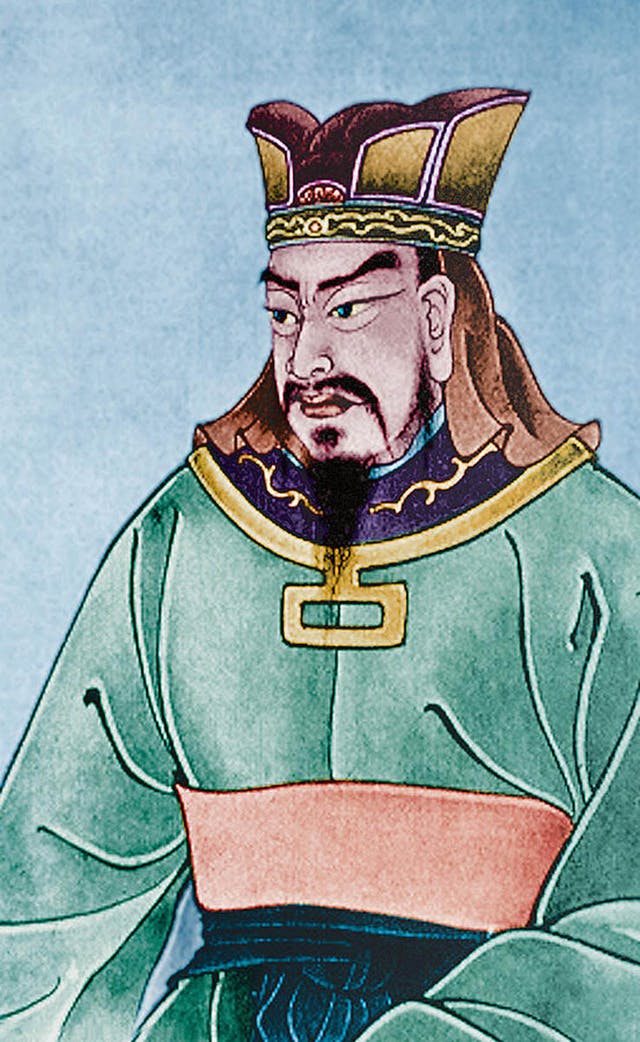
The first significant difference between Sun Tzu and Clausewitz is their frxwork. Their definitions of warfare have a very different scope and range of elements, which set the stage for the rest of their respective philosophies.
孙子和克劳塞维茨两人的第一个显著区别是结构不同。他们对战争的定义和战争要素都有着截然不动的解释,这为他们的战争哲学奠定了基础。
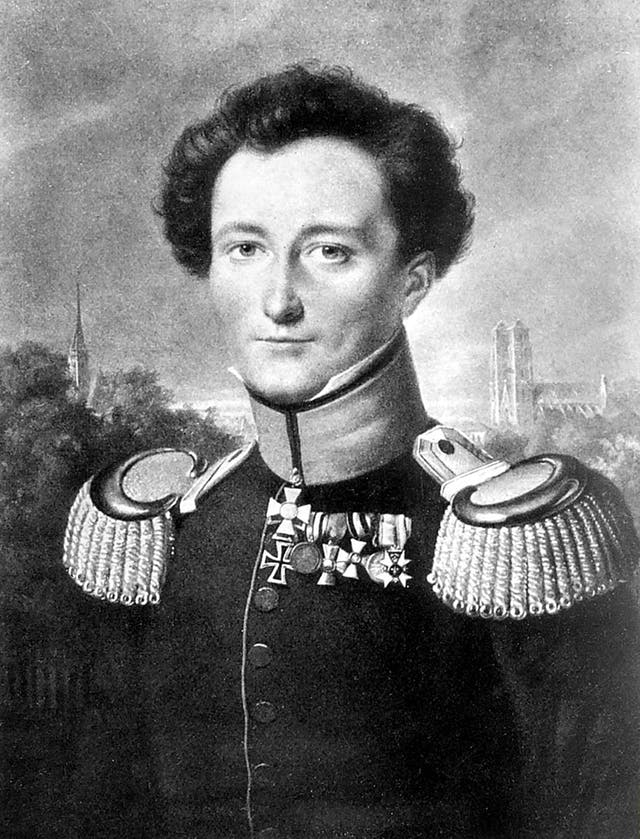
Clausewitz’s frxwork is much narrower and more strictly defined, consisting exclusively of military matters. He recognizes the importance of other arenas and that warfare is never an isolated act —indeed he is famous for his aphorism that “war is a continuation of politics by other means” — but these factors have little bearing on the duty of a general. Clausewitz defines war as “an act of violence intended to compel our opponent to fulfil our will.” Victory is the obxt and violence is the means. Other factors only matter insofar as they impact a general’s ability to win the war.
克劳塞维茨的结构要窄得多,定义也更严格,只包括军事问题。他认识到其他领域的重要性,战争从来不是孤立的行为。他确实以“战争是政治的继续,外加一些别的手段”这句格言而闻名,但这些因素对将军的职责几乎没有影响。克劳塞维茨将战争定义为“迫使敌人服从我们意志的一种暴力行为。” 胜利是目的,暴力是手段。其他因素只有在对将军赢得战争的能力有影响时才重要。
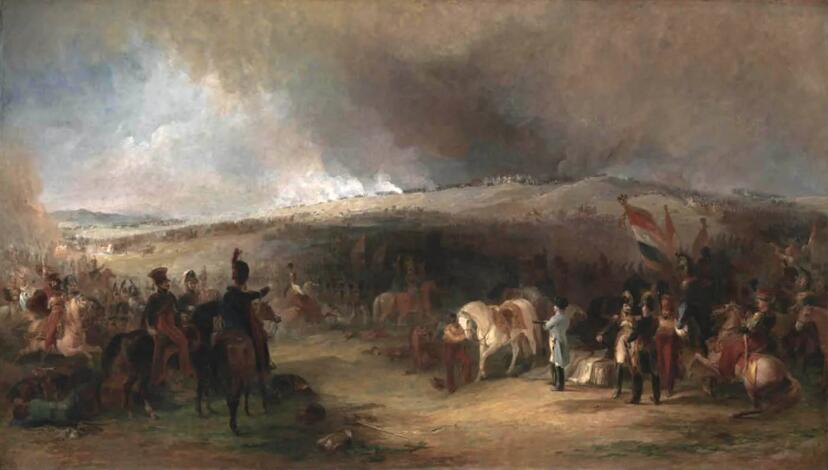
Due to the scope of their differing frxworks, Sun Tzu and Clausewitz drew different conclusions about the nature of peace and conflict itself.
由于战争结构的范围不同,孙子和克劳塞维茨对和平与冲突的性质也有着不同的结论。
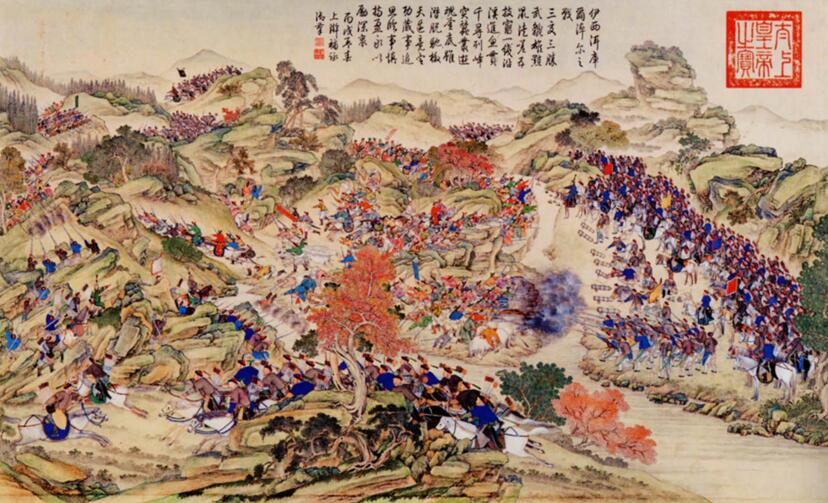
The role of force in each strategists’ theory has already been touched upon, but it deserves to be further explored. Force embodies a central position for both Sun Tzu and Clausewitz, not only in their respective strategies, but also in the differences between them.
每个战略家的理论中都会提到武力在战争中扮演的角色,但是这个问题其实需要进一步探讨。武力在孙子和克劳塞维茨的军事理论中处于核心地位,不仅体现在他们各自的策略上,也体现在两者的差异上。
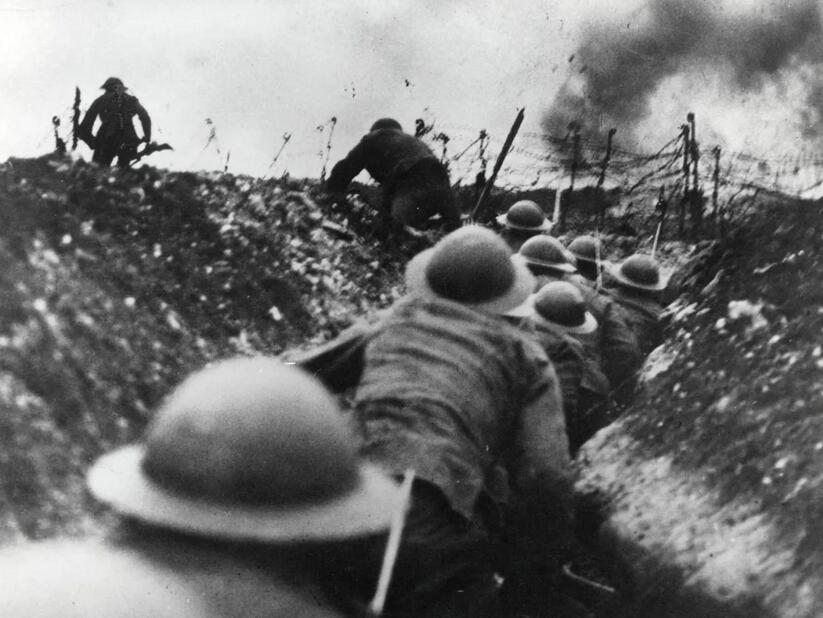
Clausewitz considers force to be not only necessary, but the most effective strategy. Maximum force should be utilized as early as possible to end the war in the shortest possible time frx. Clausewitz is results-oriented. Effectiveness is more important than efficiency, and resources lost in a large battle can be absorbed if the battle brings a decisive victory that ends the war. However, this is not to say that Clausewitz was blind to the fact that manpower is hard to regain once lost.
克劳塞维茨认为武力不仅必要,而且最有效。为了在最短的时间内结束战争,应尽早动用最大兵力。克劳塞维茨的军事理论是以结果为导向。效果比效率更重要,大型战役中损失的资源,带来的结果是结束战争的决定性胜利,那么这些损失都可以被吸收。但这并不是说克劳塞维茨忽视了人力一旦失去就很难恢复的事实。

Unsurprisingly, Sun Tzu and Clausewitz have exceedingly different ideals for victory. This includes both the circumstances and strategy leading to victory as well as the nature of the victory itself, and reflects their opinions about the use of force.
不出所料,孙子和克劳塞维茨对于理想的胜利有着截然不同的观点。这既包括胜利的环境和战略,也包括胜利的性质,反映了他们对用兵的看法。

Discussing differences in points of theory is all well and good, but what do Sun Tzu’s and Clausewitz’s strategies look like in practice? Here is a general outline of each’s preferred strategies in order of priority, assuming that the shared obxtive is to defeat an enemy nation.
讨论理论观点的不同当然好,但是孙子和克劳塞维茨的策略在实践中的效果如何呢? 假设他们的共同目标是打败敌国,下面是他们各自优先选择的策略概要。
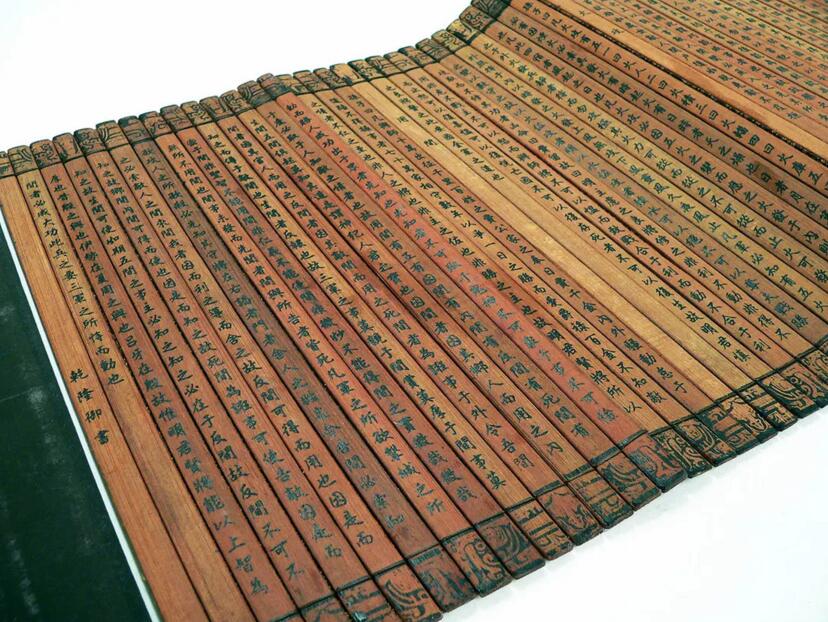
Both Sun Tzu’s Art of War and Clausewitz’s On War provide comprehensive strategies for land powers. They are remarkable in their different approaches, and together create a fascinating dialogue concerning how warfare should be conducted.
《孙子兵法》和克劳塞维茨的《战争论》都为陆权提供了全面的战略。它们以不同的方法而引人注目,并共同创造了关于如何进行战争的迷人对话。
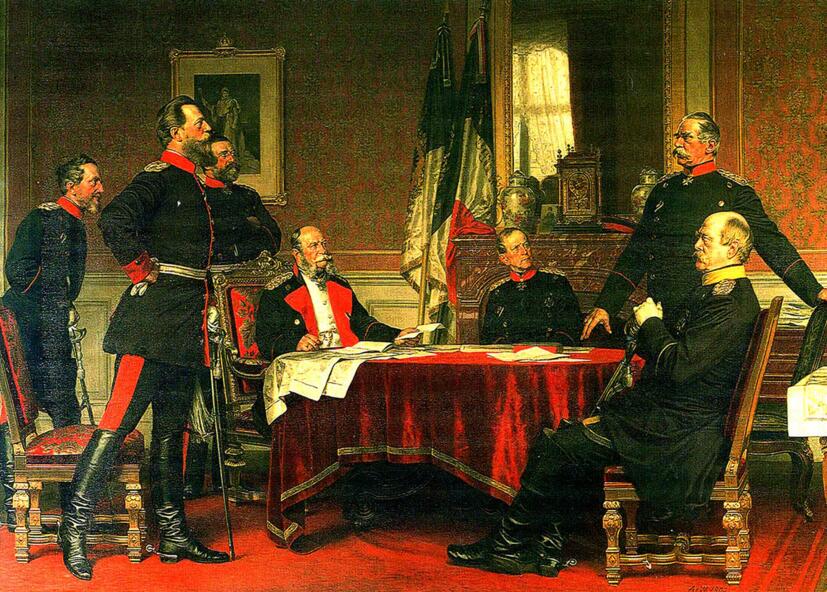
Who is the greatest strategist of all time? After this cursory comparative analysis of their strategies as found in Sun Tzu’s The Art of War and Carl von Clausewitz’s On War, it should be apparent that both offer profound insights into the art of strategy. Both have stimulated centuries of additional dialogue, shaping not only major conflicts but the military strategies of entire nations. Who is the greatest? I shall leave it to the reader to decide.
谁是有史以来最伟大的战略家? 通过对《孙子兵法》和卡尔·冯·克劳塞维茨的《战争论》中的战略进行粗略的比较分析,我们可以明显地看到,这两本书都对战略艺术提供了深刻的见解。 两部作品都激发了几个世纪的额外对话,不仅塑造了重大冲突,而且塑造了整个国家的军事战略。 谁是最伟大的? 就留给读者去决定吧。

Sun Tzu and Carl von Clausewitz are the two most well-known and respected strategic thinkers in history. Their dramatically different theories stimulate considerable debate over who is the greater strategist.
孙子和卡尔·冯·克劳塞维茨都是历史上最著名、最受尊敬的战略思想家。他们截然不同的理论引发了激烈争论,到底谁更伟大。
原创翻译:龙腾网 http://www.ltaaa.cn 转载请注明出处
In the history of military strategy, no theorists garner the same respect or have had as much influence as Sun Tzu and Carl von Clausewitz within their respective traditions. Sun Tzu was a Chinese general and ancient military strategist from the 5th century BC and reputed author of Bingfa (The Art of War), the earliest known work on strategy. Carl von Clausewitz was a Prussian general and strategist from the late 18th and early 19th centuries who fought in the Napoleonic Wars. He is famous for his work Vom Kriege (On War) published in 1832.
在军事战略史上,没有哪个理论家像孙子和克劳塞维茨那样,在各自的传统中获得了相似的尊重或具有如此大的影响力。孙子生活在公元前5世纪,是中国古代著名的军事战略家,著有《孙子兵法》,这是已知的最早的军事战略著作。卡尔·冯·克劳塞维茨是生活在18世纪末到19世纪初普鲁士的军事家和战略家,曾参加过拿破仑战争。1832年因为出版《战争论》而闻名
原创翻译:龙腾网 http://www.ltaaa.cn 转载请注明出处
在军事战略史上,没有哪个理论家像孙子和克劳塞维茨那样,在各自的传统中获得了相似的尊重或具有如此大的影响力。孙子生活在公元前5世纪,是中国古代著名的军事战略家,著有《孙子兵法》,这是已知的最早的军事战略著作。卡尔·冯·克劳塞维茨是生活在18世纪末到19世纪初普鲁士的军事家和战略家,曾参加过拿破仑战争。1832年因为出版《战争论》而闻名
原创翻译:龙腾网 http://www.ltaaa.cn 转载请注明出处
The works of these renowned strategists comprise two of the most respected and well-known military classics ever produced, and they have generated a fascinating dialectic thanks to the remarkable differences in their respective theories. This article will compare and contrast some of the most poignant principles found in Sun Tzu’s Art of War and Clausewitz’s On War, and in doing so will pose the age-old question: who is the greatest military strategist of all time?
两位著名军事家的著作成为有史以来最受尊敬和最著名的军事经典著作,由于理论的显著差异,两部著作产生了令人着迷的逻辑辩证。本文将比较和对比《孙子兵法》和克劳塞维茨《战争论》中最深刻的军事准则,并提出一个古老的问题:谁是有史以来最伟大的军事战略家?
两位著名军事家的著作成为有史以来最受尊敬和最著名的军事经典著作,由于理论的显著差异,两部著作产生了令人着迷的逻辑辩证。本文将比较和对比《孙子兵法》和克劳塞维茨《战争论》中最深刻的军事准则,并提出一个古老的问题:谁是有史以来最伟大的军事战略家?
What Was Warfare For Sun Tzu And Clausewitz?
在孙子和克劳塞维茨看来,战争是什么?
在孙子和克劳塞维茨看来,战争是什么?

The first significant difference between Sun Tzu and Clausewitz is their frxwork. Their definitions of warfare have a very different scope and range of elements, which set the stage for the rest of their respective philosophies.
孙子和克劳塞维茨两人的第一个显著区别是结构不同。他们对战争的定义和战争要素都有着截然不动的解释,这为他们的战争哲学奠定了基础。
Sun Tzu’s frxwork consists of an expansive perspective on warfare which included not only military matters, but also a large variety of non-military factors that nevertheless influence the military realm, such as diplomacy, economics, and psychology. Perhaps due to this broader frxwork, Sun Tzu was very cognizant of the potential ramifications that waging unlimited warfare can have on non-military matters, and he highlights the importance of minimizing these costs as much as possible.
孙子的军事结构包含广阔的视角,不仅包括军事,也包括大量非军事但影响军事领域的因素,如外交,经济和心理。也许是由于更广泛的结构,孙子非常清楚发动没有限制的战争对非军事事务可能产生的潜在后果,他的理论强调了尽可能减少这些成本的重要性。
孙子的军事结构包含广阔的视角,不仅包括军事,也包括大量非军事但影响军事领域的因素,如外交,经济和心理。也许是由于更广泛的结构,孙子非常清楚发动没有限制的战争对非军事事务可能产生的潜在后果,他的理论强调了尽可能减少这些成本的重要性。
Because of this awareness, Sun Tzu urges generals to pursue a maximin strategy, in which he achieves the outcome that yields the smallest loss, rather than the greatest reward. A general must be calculating, rational, and unswayed by visions of personal heroism.
由于这种意识,孙子敦促将军们追求最大最很小战略,那就是用最小的损失来获得最大的回报。指挥官必须精于算计、理性、不能受到个人英雄主义的影响。
原创翻译:龙腾网 http://www.ltaaa.cn 转载请注明出处
由于这种意识,孙子敦促将军们追求最大最很小战略,那就是用最小的损失来获得最大的回报。指挥官必须精于算计、理性、不能受到个人英雄主义的影响。
原创翻译:龙腾网 http://www.ltaaa.cn 转载请注明出处

Clausewitz’s frxwork is much narrower and more strictly defined, consisting exclusively of military matters. He recognizes the importance of other arenas and that warfare is never an isolated act —indeed he is famous for his aphorism that “war is a continuation of politics by other means” — but these factors have little bearing on the duty of a general. Clausewitz defines war as “an act of violence intended to compel our opponent to fulfil our will.” Victory is the obxt and violence is the means. Other factors only matter insofar as they impact a general’s ability to win the war.
克劳塞维茨的结构要窄得多,定义也更严格,只包括军事问题。他认识到其他领域的重要性,战争从来不是孤立的行为。他确实以“战争是政治的继续,外加一些别的手段”这句格言而闻名,但这些因素对将军的职责几乎没有影响。克劳塞维茨将战争定义为“迫使敌人服从我们意志的一种暴力行为。” 胜利是目的,暴力是手段。其他因素只有在对将军赢得战争的能力有影响时才重要。
Warfare requires aggression; the defensive position is the stronger position, but an absolute defense contradicts the idea of war. The offensive is required to win the war and achieve a positive obxtive. Clausewitz favors a stance of bold risk-taking balanced with rational calculations. A great general is one who successfully implements a maximax strategy, in which the very best outcome is achieved.
战争需要攻击;防御会处于更有利的地位,但绝对防御是与战争观念相矛盾的。进攻是为了赢得战争,并取得积极的目的。克劳塞维茨倾向于采取大胆冒险的立场,并辅以理性的计算。伟大的将军要能成功地实施最大限度的策略,从而取得最好的结果。
战争需要攻击;防御会处于更有利的地位,但绝对防御是与战争观念相矛盾的。进攻是为了赢得战争,并取得积极的目的。克劳塞维茨倾向于采取大胆冒险的立场,并辅以理性的计算。伟大的将军要能成功地实施最大限度的策略,从而取得最好的结果。
Peace Vs War
和平与战争
和平与战争

Due to the scope of their differing frxworks, Sun Tzu and Clausewitz drew different conclusions about the nature of peace and conflict itself.
由于战争结构的范围不同,孙子和克劳塞维茨对和平与冲突的性质也有着不同的结论。
Because Sun Tzu included non-military matters in his scope of warfare, his distinction between the states of war and peace is rather blurred. While military struggles do not always exist, conflict is permanent in other arenas, such as politics, economics, and society at large. In this sense, warfare is continuous. Due to this conclusion, it makes sense that Sun Tzu prioritized a maximin strategy in which a general is prudent about the use of his resources.
因为孙子把非军事因素包括在战争范围内,他对战争状态和和平状态的区分是相当模糊的。虽然军事斗争并不总是存在,但政治、经济和社会等其他领域,冲突却是永久性的。从这个意义上说,战争是连续的。由于这个结论,孙子把将军谨慎使用资源作为优先考虑的策略是有道理的。
原创翻译:龙腾网 http://www.ltaaa.cn 转载请注明出处
因为孙子把非军事因素包括在战争范围内,他对战争状态和和平状态的区分是相当模糊的。虽然军事斗争并不总是存在,但政治、经济和社会等其他领域,冲突却是永久性的。从这个意义上说,战争是连续的。由于这个结论,孙子把将军谨慎使用资源作为优先考虑的策略是有道理的。
原创翻译:龙腾网 http://www.ltaaa.cn 转载请注明出处
In an ongoing conflict, minimizing one’s losses can make all the difference between capitulating early and surviving the long game. This is not to say that Sun Tzu is ambivalent about ending military conflicts; on the contrary, he urges generals to be slow to start wars and quick to end them. Also because of this blurring of war and peace, the centers of gravity in warfare for Sun Tzu are relegated to the highest political and strategic levels.
在持续的冲突中,早点认输还是在长期博弈中幸存,这对能否最大限度地减少自己的损失就至关重要了。这并不是说,孙子对结束军事冲突持矛盾态度; 相反,他敦促将军们发动战争要慢,结束战争要快。也因为战争与和平定义的模糊,孙子对战争的重心被降级到最高政治和战略层面。
在持续的冲突中,早点认输还是在长期博弈中幸存,这对能否最大限度地减少自己的损失就至关重要了。这并不是说,孙子对结束军事冲突持矛盾态度; 相反,他敦促将军们发动战争要慢,结束战争要快。也因为战争与和平定义的模糊,孙子对战争的重心被降级到最高政治和战略层面。
Clausewitz’s narrow definition of warfare allowed him to make a very clear distinction between the states of war and peace. Conflict exists only when the military is engaged; as such, winning a war is the fastest and most effective way of returning society to a state of peace. Clausewitz develops an extensive theoretical system concerning the centers of gravity in warfare, identifying them first on the military operational level, and only secondly on a larger strategic level. The operational level is highlighted to encourage generals toward bold and effective action that will decisively end the conflict and restore society to peace.
克劳塞维茨对战争的狭义定义使他能够非常清楚地区分战争状态和和平状态。军事介入才会产生冲突;因此,赢得战争是回到和平状态的最快和最有效的方法。克劳塞维茨提供了一个广泛的关于战争重心的理论体系,首先在军事行动层面上予以确定,其次在更大的战略层面上确定。强调行动层面,鼓励将军们采取大胆和有效的行动,果断结束冲突,恢复社会和平。
克劳塞维茨对战争的狭义定义使他能够非常清楚地区分战争状态和和平状态。军事介入才会产生冲突;因此,赢得战争是回到和平状态的最快和最有效的方法。克劳塞维茨提供了一个广泛的关于战争重心的理论体系,首先在军事行动层面上予以确定,其次在更大的战略层面上确定。强调行动层面,鼓励将军们采取大胆和有效的行动,果断结束冲突,恢复社会和平。
The differences between Sun Tzu’s and Clausewitz’s conceptions of peace and war may reflect the times they lived in. Sun Tzu wrote during the chaotic Warring States Period in China, when ongoing and escalating warfare could easily ruin a state that was not careful about resource-conservation, whereas Clausewitz wrote during the 19th century, a time of transition towards intermittent but large-scale modern warfare, carried out between powerful nations in an increasingly globalized world.
孙子和克劳塞维茨在和平与战争观念上的不同,可能是因为他们所处的时代不同。孙子的军事理论是中国混乱的战国时期产生的,那个时期各国之间冲突不断,战争规模不断升级,如果某个国家不小心保持实力,很容易就会被灭国;而克劳塞维茨的著作是在19世纪完成的,19世纪是日益全球化,强国之间的冲突正演变为间歇性但大规模的现代战争。
孙子和克劳塞维茨在和平与战争观念上的不同,可能是因为他们所处的时代不同。孙子的军事理论是中国混乱的战国时期产生的,那个时期各国之间冲突不断,战争规模不断升级,如果某个国家不小心保持实力,很容易就会被灭国;而克劳塞维茨的著作是在19世纪完成的,19世纪是日益全球化,强国之间的冲突正演变为间歇性但大规模的现代战争。
The Economy Of Force
使用武力的考量
原创翻译:龙腾网 http://www.ltaaa.cn 转载请注明出处
使用武力的考量
原创翻译:龙腾网 http://www.ltaaa.cn 转载请注明出处

The role of force in each strategists’ theory has already been touched upon, but it deserves to be further explored. Force embodies a central position for both Sun Tzu and Clausewitz, not only in their respective strategies, but also in the differences between them.
每个战略家的理论中都会提到武力在战争中扮演的角色,但是这个问题其实需要进一步探讨。武力在孙子和克劳塞维茨的军事理论中处于核心地位,不仅体现在他们各自的策略上,也体现在两者的差异上。
For Sun Tzu, force should be used sparingly, and only relied upon after all other options are exhausted. Instead of relying on brute force, an army’s strength should be supplemented by force multipliers such as terrain, surprise, and other factors that offer a comparative advantage. Effectiveness is not more important than efficiency, because a state that wins a war but emerges irreparably weakened cannot enjoy its victory for long.
对于孙子来说,应该谨慎使用武力,只有其他选择都用尽之后才会使用武力。武力并不是蛮力,而应该由地形、奇袭和其他增加武力优势的因素来补充。效果并不比效率更重要,因为赢得战争,却被严重削弱的国家享受胜利的时间不会太长。
对于孙子来说,应该谨慎使用武力,只有其他选择都用尽之后才会使用武力。武力并不是蛮力,而应该由地形、奇袭和其他增加武力优势的因素来补充。效果并不比效率更重要,因为赢得战争,却被严重削弱的国家享受胜利的时间不会太长。
In this sense, Sun Tzu’s theory centers around the avoidance of hastily-used force. He instead encourages generals to utilize strategies and tactics to create the ideal conditions for the precise use of force to be effective. The Art of War speaks extensively about the importance of knowledge, deception, and formlessness to create these conditions.
在这个意义上,孙子的理论以避免草率使用武力为中心。相反,他鼓励将军们利用战略和战术,为准确有效地使用武力创造理想条件。《孙子兵法》广泛地阐述了知识、欺骗和虚实对创造这些条件的重要性。
在这个意义上,孙子的理论以避免草率使用武力为中心。相反,他鼓励将军们利用战略和战术,为准确有效地使用武力创造理想条件。《孙子兵法》广泛地阐述了知识、欺骗和虚实对创造这些条件的重要性。
The ideal commander gathers intelligence on his enemy. He is clever in using deception and unorthodox methods to surprise his opponent. He masters form and formlessness; to know the enemy while remaining hidden himself. The commander attacks only when he has the advantage and victory is assured, and he does so in a swift precision strike.
理想的指挥官要收集敌人的情报,善于用欺骗和虚实的方法给对手造成出其不意的打击。掌握虚与实; 了解敌人,隐藏自己。指挥官只有在占据优势和有把握的情况下再发动攻击,而且攻击要又快又准。
原创翻译:龙腾网 http://www.ltaaa.cn 转载请注明出处
理想的指挥官要收集敌人的情报,善于用欺骗和虚实的方法给对手造成出其不意的打击。掌握虚与实; 了解敌人,隐藏自己。指挥官只有在占据优势和有把握的情况下再发动攻击,而且攻击要又快又准。
原创翻译:龙腾网 http://www.ltaaa.cn 转载请注明出处

Clausewitz considers force to be not only necessary, but the most effective strategy. Maximum force should be utilized as early as possible to end the war in the shortest possible time frx. Clausewitz is results-oriented. Effectiveness is more important than efficiency, and resources lost in a large battle can be absorbed if the battle brings a decisive victory that ends the war. However, this is not to say that Clausewitz was blind to the fact that manpower is hard to regain once lost.
克劳塞维茨认为武力不仅必要,而且最有效。为了在最短的时间内结束战争,应尽早动用最大兵力。克劳塞维茨的军事理论是以结果为导向。效果比效率更重要,大型战役中损失的资源,带来的结果是结束战争的决定性胜利,那么这些损失都可以被吸收。但这并不是说克劳塞维茨忽视了人力一旦失去就很难恢复的事实。
To best achieve victory, force must be wielded both boldly and strategically. The ideal commander can balance the two with acumen; he is capable and decisive, a strategic and tactical genius, and has an immense presence of mind, imagination, and strength of will. This general will identify a weak point in the enemy’s defenses and launch a concentrated force directly at that weak point. He does this on the higher strategic level, but especially on the operational level when conducting a battle.
为了获得优势胜利,必须战略而且大胆地使用武力。理想的指挥者能够敏锐地在两者之间找到平衡,有能力、果断,战略和战术天才,要有很强的意识、想象力和意志力。这样就能找出敌人防御的薄弱环节,并集中兵力直接景工敌方的薄弱环节。将军要在战争的更高战略层面掌控,尤其是在作战层面。
为了获得优势胜利,必须战略而且大胆地使用武力。理想的指挥者能够敏锐地在两者之间找到平衡,有能力、果断,战略和战术天才,要有很强的意识、想象力和意志力。这样就能找出敌人防御的薄弱环节,并集中兵力直接景工敌方的薄弱环节。将军要在战争的更高战略层面掌控,尤其是在作战层面。
The Ideal Victory
理想的胜利
原创翻译:龙腾网 http://www.ltaaa.cn 转载请注明出处
理想的胜利
原创翻译:龙腾网 http://www.ltaaa.cn 转载请注明出处

Unsurprisingly, Sun Tzu and Clausewitz have exceedingly different ideals for victory. This includes both the circumstances and strategy leading to victory as well as the nature of the victory itself, and reflects their opinions about the use of force.
不出所料,孙子和克劳塞维茨对于理想的胜利有着截然不同的观点。这既包括胜利的环境和战略,也包括胜利的性质,反映了他们对用兵的看法。
For Sun Tzu, the greatest victory is to win without actual combat. Convince the enemy army to surrender before battle even begins. To do so, Sun Tzu’s preferred implementation of strategy involves non-military means and the conservation of military force until the right moment. Sun Tzu wrote that “to fight and conquer in all your battles is not supreme excellence; supreme excellence consists in breaking the enemy’s resistance without fighting.”
孙子认为最伟大的胜利是不战而胜。不战而屈人之兵。为了做到这一点,孙子首选的战略包括非军事手段和保存军事实力,等待恰当的时机。孙子写道:“是故百战百胜,非善之善也;不战而屈人之兵,善之善者也。”
孙子认为最伟大的胜利是不战而胜。不战而屈人之兵。为了做到这一点,孙子首选的战略包括非军事手段和保存军事实力,等待恰当的时机。孙子写道:“是故百战百胜,非善之善也;不战而屈人之兵,善之善者也。”
Clausewitz’s ideal victory is to annihilate the enemy’s army in a decisive major battle. The primary tool for implementing his strategy is that of force; other tools are available but not considered paramount. However, the appearance of simplicity in Clausewitz’s formula should not be mistaken for a lack of sophistication.
克劳塞维茨理想的胜利是在一场决定性的重大战役中歼灭敌人的军队。实施他的战略的主要工具是武力; 其他工具也可用,但不是最重要的。然而,克劳塞维茨公式中简洁的表象不应被误解为缺乏复杂性。
克劳塞维茨理想的胜利是在一场决定性的重大战役中歼灭敌人的军队。实施他的战略的主要工具是武力; 其他工具也可用,但不是最重要的。然而,克劳塞维茨公式中简洁的表象不应被误解为缺乏复杂性。
He wrote, “Everything is very simple in War, but the simplest thing is difficult.” The general must overcome any number of unforeseen circumstances and difficulties. Clausewitz was particularly aware of the immense complexities introduced by the ever-developing technological realities of modern warfare.
他写道:“战争的一切都很简单,但最简单的事情也很困难。”将军必须克服许多无法预料的情况和困难。克劳塞维茨特别注意到现代战争中不断发展的技术现实所带来的巨大复杂性。
原创翻译:龙腾网 http://www.ltaaa.cn 转载请注明出处
他写道:“战争的一切都很简单,但最简单的事情也很困难。”将军必须克服许多无法预料的情况和困难。克劳塞维茨特别注意到现代战争中不断发展的技术现实所带来的巨大复杂性。
原创翻译:龙腾网 http://www.ltaaa.cn 转载请注明出处
What Do Their Strategies Look Like In Practice?
他们的策略在实践中是什么样子的?
他们的策略在实践中是什么样子的?

Discussing differences in points of theory is all well and good, but what do Sun Tzu’s and Clausewitz’s strategies look like in practice? Here is a general outline of each’s preferred strategies in order of priority, assuming that the shared obxtive is to defeat an enemy nation.
讨论理论观点的不同当然好,但是孙子和克劳塞维茨的策略在实践中的效果如何呢? 假设他们的共同目标是打败敌国,下面是他们各自优先选择的策略概要。
Sun Tzu’s first suggestion is to attack the enemy’s strategy before ever engaging with their forces. If the enemy commander’s strategy can be neutralized, then the war is mostly won. But if that can’t be done, then Sun Tzu’s second choice is to break up the enemy’s alliances before war breaks out. Only after attempting these should the general attack the enemy’s army, and if all else fails, he may attack the enemy’s cities.
孙子的第一个建议是在与敌人交战之前先攻击敌人的策略。如果敌人指挥官的策略能够被压制,那么战争就基本取得了胜利。如果做不到这一点,那么孙子的第二个选择就是在战争爆发前瓦解敌人的联盟。只有在做了这些尝试之后,将军才可以进攻敌人的军队,如果其他选项都失败了,他可能会建议进攻敌人的城市。
孙子的第一个建议是在与敌人交战之前先攻击敌人的策略。如果敌人指挥官的策略能够被压制,那么战争就基本取得了胜利。如果做不到这一点,那么孙子的第二个选择就是在战争爆发前瓦解敌人的联盟。只有在做了这些尝试之后,将军才可以进攻敌人的军队,如果其他选项都失败了,他可能会建议进攻敌人的城市。
Clausewitz first and foremost encourages the destruction of the enemy’s army as a general’s top priority. If that doesn’t work, he may attempt to seize the enemy’s capital. If destroying their army or seizing their capital fails, then the commander should militarily defeat the enemy’s allies. Only after these military operations fail does Clausewitz suggest attacking the enemy’s leader or public opinion.
克劳塞维茨会最先鼓励把摧毁敌人的军队作为首要任务。如果不起作用,他可能会建议夺取敌人的首都。如果消灭军队或夺取首都失败了,那么指挥官应该在军事上击败敌人的盟友。只有在这些军事行动失败后,克劳塞维茨才建议攻击敌人的首领或公众舆论。
克劳塞维茨会最先鼓励把摧毁敌人的军队作为首要任务。如果不起作用,他可能会建议夺取敌人的首都。如果消灭军队或夺取首都失败了,那么指挥官应该在军事上击败敌人的盟友。只有在这些军事行动失败后,克劳塞维茨才建议攻击敌人的首领或公众舆论。
The Strategists’ Advantages And Disadvantages
两位战略家的优点和缺点
两位战略家的优点和缺点

Both Sun Tzu’s Art of War and Clausewitz’s On War provide comprehensive strategies for land powers. They are remarkable in their different approaches, and together create a fascinating dialogue concerning how warfare should be conducted.
《孙子兵法》和克劳塞维茨的《战争论》都为陆权提供了全面的战略。它们以不同的方法而引人注目,并共同创造了关于如何进行战争的迷人对话。
Sun Tzu’s maximin strategy desires the least costly victories and prefers non-military approaches. This is prudent in that it recognizes the importance of resources in long-term conflicts and acknowledges the broader non-military context around warfare. Sun Tzu also displays an impressive understanding of psychological warfare. However, his strategy has been criticized for being overly idealistic and hesitant to recognize the inevitability of violent conflict in war.
孙子的最大策略是希望以最少的代价取得胜利,并倾向于非军事手段。这是谨慎的,因为他认识到资源在长期冲突中的重要性,并承认战争拥有更广泛的非军事背景。孙子对心理战也有深刻的理解。但是,有人批评他的战略过于理想化,没有认识到战争中暴力冲突的必然性。
孙子的最大策略是希望以最少的代价取得胜利,并倾向于非军事手段。这是谨慎的,因为他认识到资源在长期冲突中的重要性,并承认战争拥有更广泛的非军事背景。孙子对心理战也有深刻的理解。但是,有人批评他的战略过于理想化,没有认识到战争中暴力冲突的必然性。
Clausewitz’s maximax strategy recognizes the effective use of force and risk-taking as the fastest way to victory. His approach is realistic and relevant for most types of warfare. However, his strategy can very easily accrue high costs in damages, and he has been criticized for underestimating some non-military aspects of warfare as well as relying too heavily upon force to defeat the enemy.
克劳塞维茨的大中求大战略认为有效使用武力和冒险是取得胜利的最快途径。对于大多数类型的战争来说他的方法现实而且适用。然而,他的战略很容易造成很高的损失,有人批评他低估了战争的非军事方面的背景,以及过于依赖武力击败敌人。
克劳塞维茨的大中求大战略认为有效使用武力和冒险是取得胜利的最快途径。对于大多数类型的战争来说他的方法现实而且适用。然而,他的战略很容易造成很高的损失,有人批评他低估了战争的非军事方面的背景,以及过于依赖武力击败敌人。
Who Was The Greater Strategist: Sun Tzu Or Clausewitz?
谁是伟大的战略家:孙子还是克劳塞维茨?
谁是伟大的战略家:孙子还是克劳塞维茨?

Who is the greatest strategist of all time? After this cursory comparative analysis of their strategies as found in Sun Tzu’s The Art of War and Carl von Clausewitz’s On War, it should be apparent that both offer profound insights into the art of strategy. Both have stimulated centuries of additional dialogue, shaping not only major conflicts but the military strategies of entire nations. Who is the greatest? I shall leave it to the reader to decide.
谁是有史以来最伟大的战略家? 通过对《孙子兵法》和卡尔·冯·克劳塞维茨的《战争论》中的战略进行粗略的比较分析,我们可以明显地看到,这两本书都对战略艺术提供了深刻的见解。 两部作品都激发了几个世纪的额外对话,不仅塑造了重大冲突,而且塑造了整个国家的军事战略。 谁是最伟大的? 就留给读者去决定吧。
评论翻译
Peace Vs War
和平与战争
原创翻译:龙腾网 http://www.ltaaa.cn 转载请注明出处
和平与战争
原创翻译:龙腾网 http://www.ltaaa.cn 转载请注明出处
很赞 13
收藏